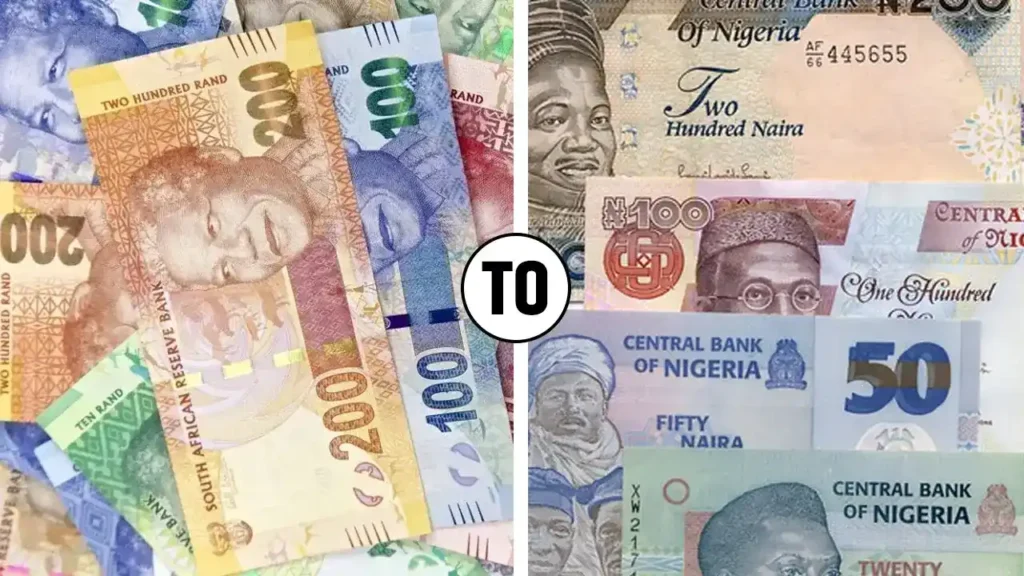Following recent rate cut by Reserve Bank of South Africa, her currency, Rand has appreciated to a 20-month high, while Central Bank of Nigeria (CBN)’s rate hike, on the other hand, had impacted negatively on its fortunes.
However, expectations are high with current historic moves by CBN’s through higher yields and sale of dollars to Bureau de Change (BDCs) to stabilise and boost liquidity in the foreign exchange market.
The rand appreciated to R17.1860 per dollar on Thursday from R17.22/$ traded on Wednesday, September 25, 2024.
It has also appreciated by 1.6 percent from R17.4670/$ since the SARB cut its rates last week.
Analysts have attributed the rand’s current strength partly to positive sentiment in the wake of interest rate cuts by the South African Reserve Bank (SARB) and the U.S. Federal Reserve, (Fed)
“We are likely to continue to trade in an R17.20/R17.40 range for now,” said Andre Cilliers, currency strategist at TreasuryONE.
But, the naira has declined by 8.2 percent since CBN raised its Monetary Policy Rate (MPR), for the fifth time, by 50 basis points on Tuesday.
Specifically, at the Nigerian Autonomous Foreign Exchange Market, the naira fell from N1541/$ on Friday, September 20, 2024, to N1667.42/$, Wednesday, September 25, 2024.
Similarly , at the black market, the local naira fell to a seven-month low of over N1,700 per dollar, the lowest fall since February 22, 2024, when the dollar was quoted at the rate of N1,850/$.
CBN has raised the benchmark interest rate by a total of 850 basis points to 27.25 percent from 26.25 percent, since Olayemi Cardoso assumed office, making it the highest recorded in the country.
ALSO READ:Former Senegalese Minister Jailed For Embezzlement As New Administration Tackles Corruption
The Monetary Policy Committee noted that the CBN’s tight monetary policy had brought about relative stability and a degree of convergence in exchange rates across various market segments.
Nigeria’s inflation slowed for the second month to 32.15 percent in August, data from the National Bureau of Statistics shows.
However, some analysts and manufacturers say the target of inflation reduction and attracting foreign investments should not be seen as only justifications for the continuous hike, noting that local businesses are being adversely affected.
Besides, they further argue that the recent currency depreciation and volatility in the fx market highlight the complex dynamics in the foreign exchange market and the ongoing challenges in achieving currency stability.
For instance, they cite lack of certainly and predictability of CBN’s interventions as robbing them of the needed planning that would have engineered relative stability, with the attendant price discovery.
According to them, the ‘one-way’ rate hike is putting unnecessary pressure on those who are borrowing money, with the potential high risk of defaults as well as high non performing loans (NPLs)
Already, banks’ quest to reprice outstanding facilities on the account of higher MPR and Cash Reserve Ratio (CRR) is expected to further deteriorate the frosty relationship between banks and their customers, a potential threat to CBN’s financial inclusion project.
